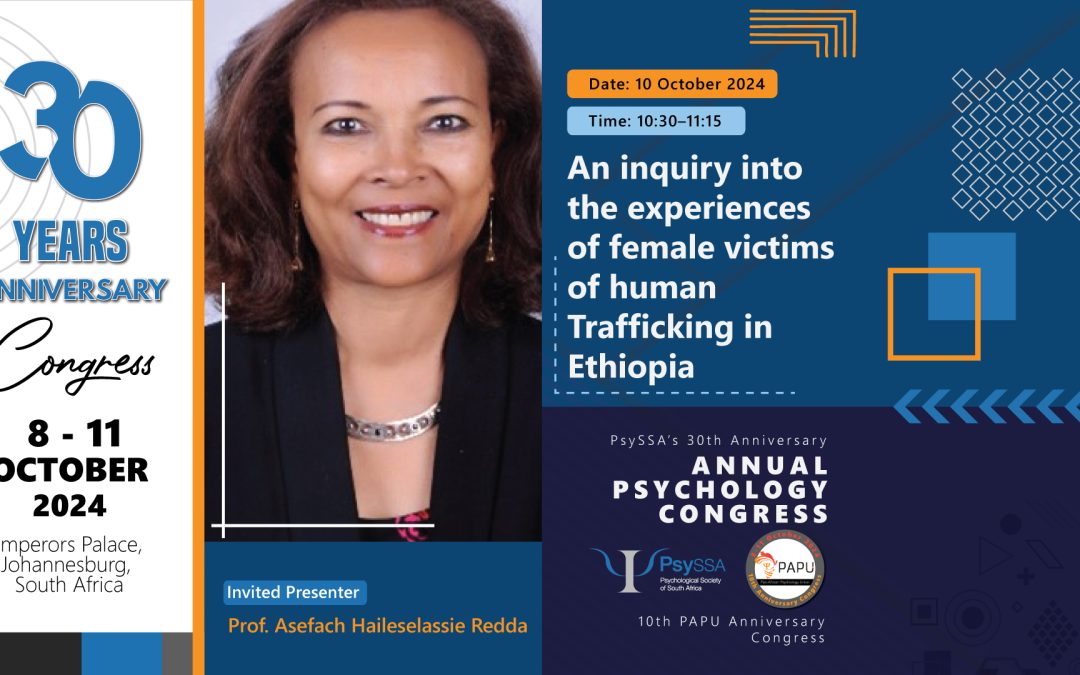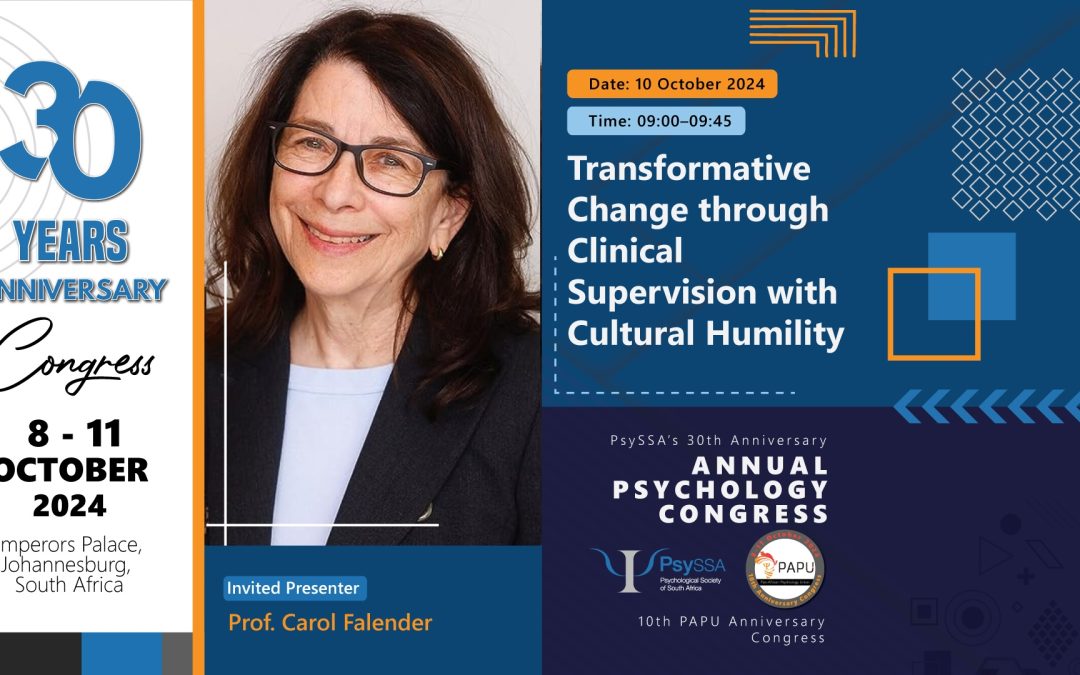
PsySSA’s 30th and PAPU’s 10th Anniversary Congress: Invited Address by Prof. Asefach Haileselassie Redda
An inquiry into the experiences of female victims of human trafficking in Ethiopia
The purpose of this study is to tell the story of female victims of human trafficking from Ethiopia. It relates to the cause of trafficking and how it affects their social and emotional wellbeing. The study is conducted in light of constructivist framework and involves in-depth interviews with five returnees whose experiences as victims are explored. This is done to get insight into the challenges faced by the wider population. Themes evident in the stories are discussed in line with relevant literature. The study shows lack of job opportunities, limited income and false promises made by brokers as the major factors drawing women into human trafficking. The findings also show that even after return, the victims experience further difficulties due to post-traumatic psychological factors. Looking at the significance of the research outcome, the gleaned information could be of value for organizations working on migration, Rehabilitating trafficking survivors and countering human trafficking.
Keywords: Female, Human trafficking, Migration, Migrant workers, Psychosocial and victims of trafficking.
Prof. Assefach Haileselassie Redda
Asefach Haileselassie is a Psychologist, Certified Management Consultant and an expert on Migration & Human Trafficking & psychosocial support. She focuses on Psycho-educating her society through various media outlets, Training, Counseling and writing books and articles. She is the Author of two books in Amharic, the national language of Ethiopia and the books focused on parenting and family life. She is currently working on preparing her two books in English language to address African and the global audience at large. Asefach has served as a President and Vice President of the Ethiopian Psychology Association (EPA) in different times and she is the founding member of the Executive Board of the Pan African Psychology Union (PAPU). Asefach is married and a mother of 3, one daughter and two sons and one granddaughter.




